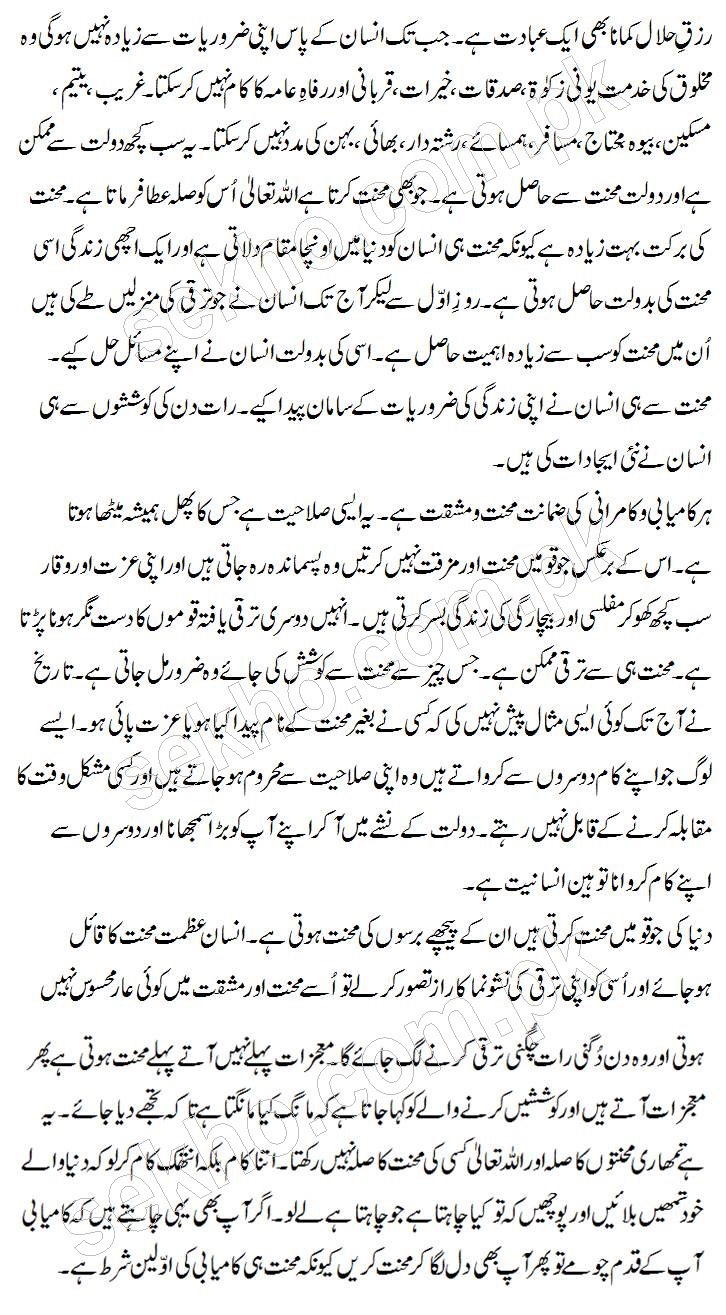Mehnat Ki Azmat Essay In Urdu
Hard work holds an exalted place in human life and is regarded as a form of worship in many cultures, including in Islam. Lawful earning is not just a necessity for survival; it is a moral and spiritual act that enhances one’s ability to contribute to society. Without adequate resources, individuals may struggle to engage in essential acts of charity, such as Zakat, donations, and social work. These contributions are vital for uplifting those in need, including the poor, orphans, and widows. The key to achieving this noble goal lies in wealth earned through consistent effort and diligence. Just as working hard shapes individual success, the essay on Love Pakistan encourages students to serve and honor their country.
The principle of “Mehnat Ki Azmat” (The Virtue of Hard Work) highlights the value of tireless perseverance. Hard work elevates individuals, bringing them dignity, respect, and a better quality of life. Every major achievement in history is a testament to persistent effort. Through relentless dedication, people not only overcome challenges but also achieve great innovations and advancements.
Essay on Mehnat ki Azmat in Urdu
محنت کی عظمت پر مضمون
The Importance of Hard Work
Hard work and perseverance are the foundation of success. Individuals who embrace these virtues achieve personal growth and contribute positively to society. On the other hand, nations or individuals who avoid hard work often find themselves trapped in poverty, unable to achieve pride or progress. Students can improve their writing skills by reading this essay along with other Urdu essays for 10th students.
History teaches us that no success is possible without effort. Nations that have risen to greatness have done so through decades, sometimes centuries, of tireless labor. Conversely, laziness and dependency on others lead to stagnation and failure. A society that neglects the value of hard work falls behind others, losing its respect and standing in the world.
The message of “Mehnat Ki Azmat” serves as a reminder that one must strive diligently to earn respect and success. Personal achievements not only bring self-respect but also serve as inspiration for others.
Hard Work in Faith and Life
Islam places great emphasis on lawful earning through effort. The Quran and Hadiths repeatedly stress the value of working hard and earning through honest means. Allah rewards those who dedicate themselves to their work and strive to contribute to society. The journey of life itself is a test of resilience, where hard work plays a central role.
Hard Work as a Catalyst for Change
Hard work fosters resilience and self-discipline, enabling individuals to overcome obstacles and achieve their goals. It transforms ambitions into tangible realities, bringing a sense of purpose and fulfillment. Moreover, by embracing hard work, individuals can inspire societal progress and prosperity.
Nations that have succeeded in building strong economies and infrastructures have done so through years of relentless labor and sacrifice. These examples underscore the importance of diligence in achieving greatness.
The Consequences of Avoiding Hard Work
Laziness and reliance on others often lead to stagnation and poverty. A lack of effort not only hampers personal growth but also contributes to societal decline. History offers no examples of enduring success without hard work. Whether it is individuals or nations, the consequences of avoiding hard work are universal: loss of dignity, respect, and progress.
Lessons from History and Contemporary Society
Examples abound in history and contemporary times of individuals and nations that have achieved greatness through relentless effort. Icons like Thomas Edison, Allama Iqbal, and leaders of developed nations showcase how perseverance leads to innovation, enlightenment, and prosperity. These examples serve as powerful reminders that no obstacle is insurmountable with hard work. After reading about hard work, young students can explore more topics in Urdu essays for class 2, which include simple and engaging lessons.
On the other hand, the decline of civilizations due to complacency and lack of effort highlights the necessity of diligence. The lessons of “Mehnat Ki Azmat” teach us to avoid such pitfalls by valuing perseverance and effort.
FAQs:
What are the key themes of “Mehnat Ki Azmat”?
The essay highlights the significance of hard work as the foundation of success, contrasting diligence with the negative consequences of laziness and dependency.
How does “Mehnat Ki Azmat” illustrate the importance of hard work?
The essay uses examples from history and modern times to show how hard work leads to personal and societal progress, while neglecting effort results in failure.
What examples are used in the essay to emphasize the value of diligence?
The essay discusses successful individuals and nations that achieved greatness through effort, contrasting them with those that failed due to complacency.
The “Mehnat Ki Azmat Essay in Urdu” encapsulates a universal truth: hard work is the key to success, dignity, and societal progress. It is through persistence, resilience, and honest effort that individuals and nations can achieve greatness. By valuing hard work, we not only elevate our own lives but also contribute to the betterment of society as a whole.


wonderful esssay
Visitor Rating: 5 Stars
Great helped me a lot
really helped me.thankyou
Needed more improvement
not bad